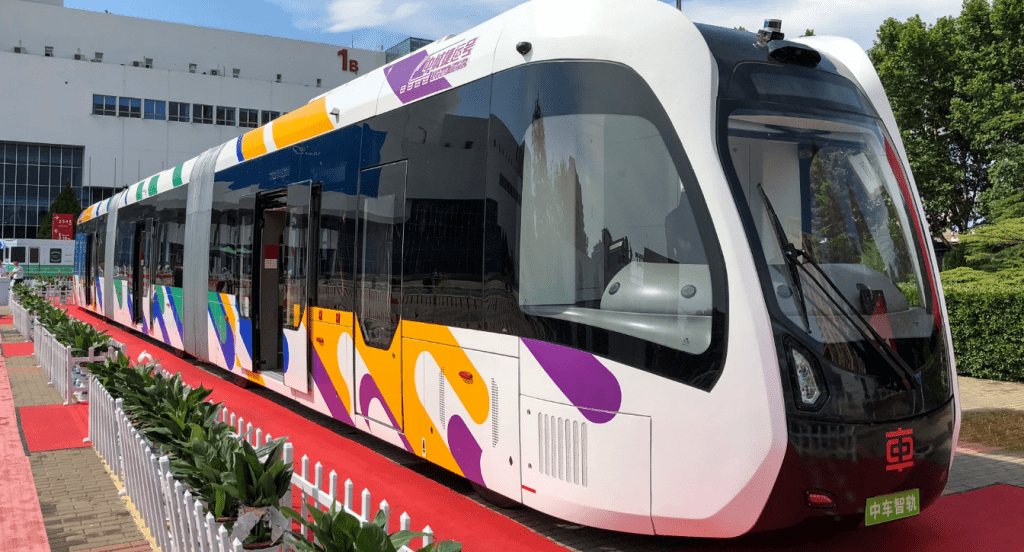By Buthayna Al Haggar
Dubai has announced ambitious plans to introduce an autonomous, all-electric tram system, aiming to reduce traffic and promote green transport as vehicle numbers soar. This is part of a larger vision to alleviate road congestion and advance eco-friendly transit solutions across the emirate.
The initiative, unveiled by Sheikh Hamdan bin Mohammed, the Crown Prince of Dubai, also marks a significant step toward achieving Dubai’s target of 25 percent fully autonomous transport by 2030.
According to the Dubai Media Office, the trackless trams will use cutting-edge technology, including cameras that detect painted lines on dedicated lanes.
Each tram will consist of three carriages, with a total capacity of 300 passengers, a top speed of 70kph, and an operational range of up to 100km on a single charge.
The Growing Need for Smarter Transit Solutions
Dubai’s population growth has led to an exponential rise in road traffic, with 3.5 million vehicles on the roads during daytime, an increase of 10 percent over the past two years.
By comparison, the global vehicle registration growth rate averages only 2 to 4 percent. This surge in vehicle numbers reflects Dubai’s projected population of 5.8 million by 2040.
To address these pressures, Sheikh Hamdan recently reviewed a comprehensive Dh16 billion road development plan, which includes expanding main roads like Umm Suqeim and Al Qudra to accommodate higher traffic volumes.
Additional plans to extend dedicated bus and taxi lanes are also underway, slated for completion by 2026.
Congestion-Cutting Strategies on the Road
Despite significant traffic increases, Dubai ranks competitively in terms of global journey time rankings.
According to the 2023 TomTom Global Traffic Index, Dubai’s journey time for a 10km trip within its central business district averages 12 minutes and 50 seconds, placing it ahead of major cities like London and Berlin.
The planned autonomous trams will support the emirate’s strategy of reducing road congestion by encouraging the public to opt for efficient, electric public transport over private vehicles.
This initiative follows similar steps by Abu Dhabi, which launched its fleet of electric Autonomous Rapid Transit (ART) vehicles connecting key locations across the city.
Driving a Sustainable Future for Dubai’s Public Transport
As we previously mentioned, Dubai’s trackless tram project is part of a broader movement toward sustainability and innovation within the UAE’s public transport sector. In June, Dubai announced a plan to more than double its Metro and tram stations by 2040.
Additionally, the UAE government issued its first national license for self-driving vehicles to the Chinese firm WeRide in 2023, further underscoring its commitment to a sustainable, autonomous future.
By investing in autonomous electric trams, Dubai continues to shape its role as a leader in sustainable urban mobility, setting an example for other cities striving to reduce emissions and improve public transportation.
With the new trackless trams, the city aims to tackle traffic congestion, improve commute times, and promote a cleaner, more sustainable future for all residents.
We Also Said: Don’t Miss It…Medina’s Greening Initiative: Replanting for a Sustainable Future



